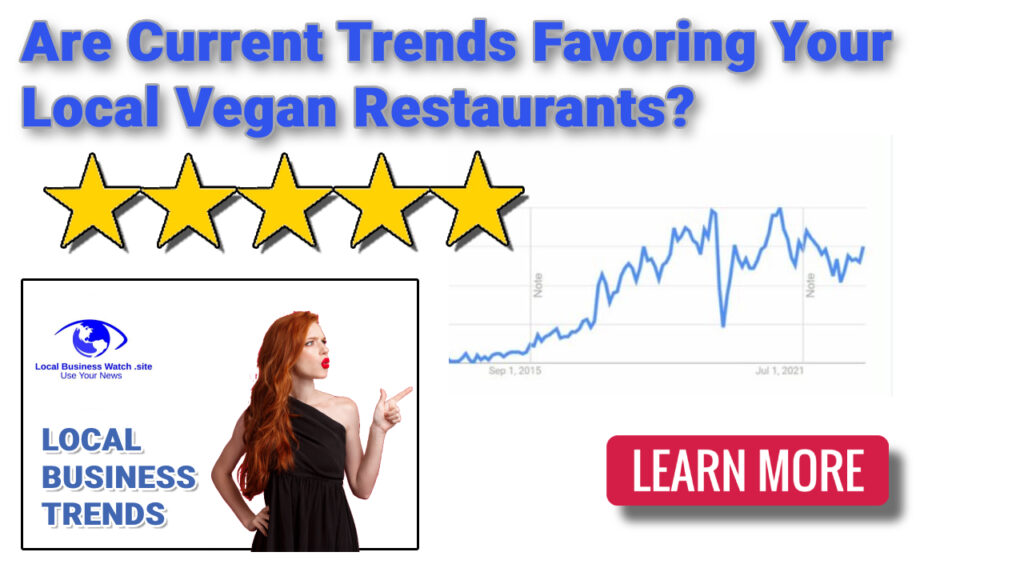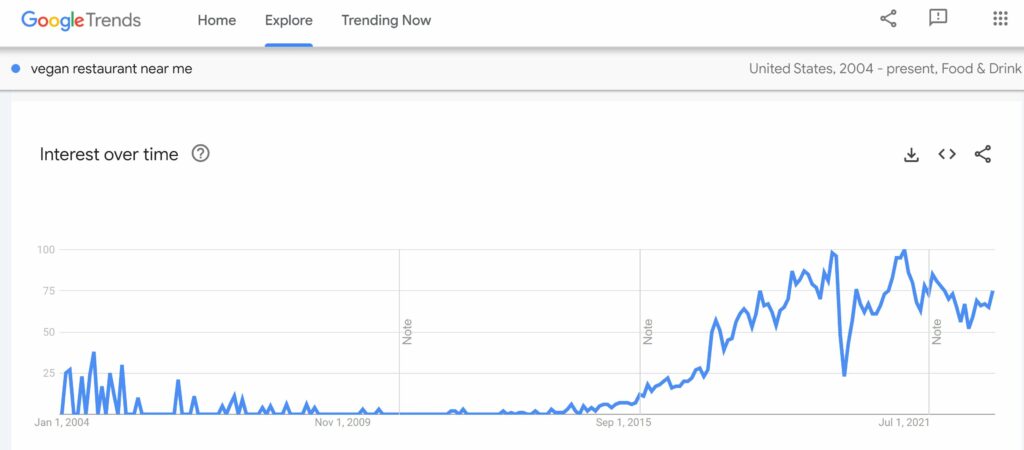The evolving landscape of the supply chain holds intriguing potential for vegan restaurants, especially considering the burgeoning frugality trends among diners.

According to researchers, a notable consequence of inflation is the removal of meat-based dishes from restaurant menus. This response arises from the need to navigate the financial implications of inflated and fluctuating costs of meat and poultry.
Looking ahead, retailers are expected to embrace a strategic shift towards shorter supply chains by forging partnerships with local suppliers. This proactive measure would yield several advantages for vegan restaurants. By reducing transportation and storage costs, it would optimize operational efficiency while bolstering supply chains against unforeseen disruptions such as adverse weather conditions or conflicts. The depletion of food stocks in traditional retail outlets has driven consumers to rely more on local farms, particularly during the pandemic-induced lockdowns, when home cooking became the norm across the United States.
Another factor in increasing meat costs is the new scarcity of workers poses a significant challenge, ultimately impeding the production process. The food industry at large continues to grapple with these labor shortage challenges, as workers actively seek more lucrative opportunities or roles that are less physically demanding. This persisting issue undermines the overall operational efficiency within the industry.
Media Interest Surge Could Translate Into More Bottom Up Patronage
Veganism is rapidly gaining traction and becoming more mainstream with the increased media interest. With the increasing awareness of environmental issues, animal welfare concerns, and the impact of meat consumption on climate change, people are making conscious choices to adopt a vegan diet and lifestyle. As a result, the number of vegan restaurants worldwide is on the rise, catering to the growing demand for plant-based options.
The surge in popularity of veganism has not only been driven by ethical considerations but also by media focus on reducing greenhouse gas emissions. Livestock farming is a significant contributor to greenhouse gas emissions, and by eliminating meat from their diets, individuals can make a positive impact on the environment. Consequently, restaurants that fail to offer vegan menu options are experiencing a decline in sales, as they struggle to meet the evolving preferences of their customers.
Recognizing the shift in consumer behavior, many restaurants and cafés have responded by dedicating an entire section of their menus to vegan options. This includes a variety of fast food staples, such as vegan burgers and pizzas, which have become increasingly popular among both vegans and non-vegans alike. Some establishments have gone a step further by exclusively providing vegan food, offering a diverse range of dishes and beverages made from locally sourced produce. These initiatives not only cater to the demands of vegan consumers but also attract those who seek healthier and more sustainable dining choices.
The COVID-19 pandemic's impact on inflation and supply chain effects have also played a significant role in shaping people's food consumption habits. As individuals have become more health-conscious and mindful of the environment, they are increasingly opting for plant-based alternatives to dairy and meat products. The adverse effects of excessive meat consumption, coupled with the prevalence of lactose intolerance, have prompted restaurants to pay special attention to the demands of their customers. By embracing veganism and incorporating plant-based options into their menus, restaurants are able to adapt to the changing landscape of food preferences and cater to a broader customer base.
Looking ahead, restaurants are proactively analyzing consumer behavior and demands related to vegan food. This proactive approach ensures that a wider variety of vegan food and beverages will become commonplace in the future. In addition to traditional vegan dishes, there is a growing demand for food made from naturally sourced ingredients, organic vegan superfoods, and vegan protein shakes. This shift toward plant-based alternatives presents numerous opportunities for restaurants to offer both delicious and healthy food choices to their customers, aligning with their values and dietary preferences.
Veganism is a rapidly growing trend in the food industry, driven by a renewed wave of media focus on concerns for the environment, animal welfare, and personal health. The increasing demand for vegan options has led to the rise of dedicated vegan restaurants and an expansion of plant-based offerings in traditional establishments. As more people embrace veganism and seek out sustainable and cruelty-free dining experiences, the food industry will continue to evolve to meet these changing needs.
As the supply chain landscape undergoes a transformative shift, vegan restaurants stand to benefit from the altered consumer preferences shaped by economic circumstances. By adapting to changing demands and embracing innovative solutions, these establishments can capitalize on the evolving market dynamics and reinforce their position in the food industry.
The post Inflation And Supply Chain Issues Could Mean More Customers For Vegan Restaurants appeared first on https://gqcentral.co.uk
The Article Inflation And Supply Chain Issues Could Mean More Customers For Vegan Restaurants First Appeared ON
: https://ad4sc.com

Comments are closed